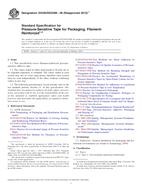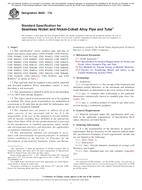1.1 This specification covers brick made from clay or shale or mixtures thereof and are suitable for surfacing industrial floors. Ceramic shapes known as quarry tile are not covered by this specification. Four types of industrial floor brick are covered (Note 1):
1.1.1 Type T – For use where a high degree of resistance to thermal and mechanical shock is required but low absorption is not required.
1.1.2 Type H – For use where resistance to chemicals and thermal shock are service factors but low absorption is not required.
1.1.3 Type M – For use where low absorption is required. Brick of this type are normally characterized by limited mechanical (impact) shock resistance but are often highly resistant to abrasion.
1.1.4 Type L – For use where minimal absorption and a high degree of chemical resistance are required. Brick of this type are normally characterized by very limited thermal and limited mechanical (impact) shock resistance but are highly resistant to abrasion.
Note 1 – Discussion of Types of Floor Brick – The four types of brick included in this specification are designed to cover the diverse needs of many industries for floor units. Recognizing that the requirements of primary aluminum producers for floor brick are quite different from those of chemical manufacturers, and similarly, that the needs of a builder for brick with which to pave an airport terminal building may vary considerably from those of food processing plants, for example, a minimum of four brick types has been deemed necessary. The factors of absorption and chemical resistance have been selected as the bases for the classification system.
1.2 The values stated in inch-pound units are to be regarded as the standard. The values given in parentheses are for information only.
Product Details
- Published:
- 06/10/2003
- Number of Pages:
- 2
- File Size:
- 1 file , 21 KB


